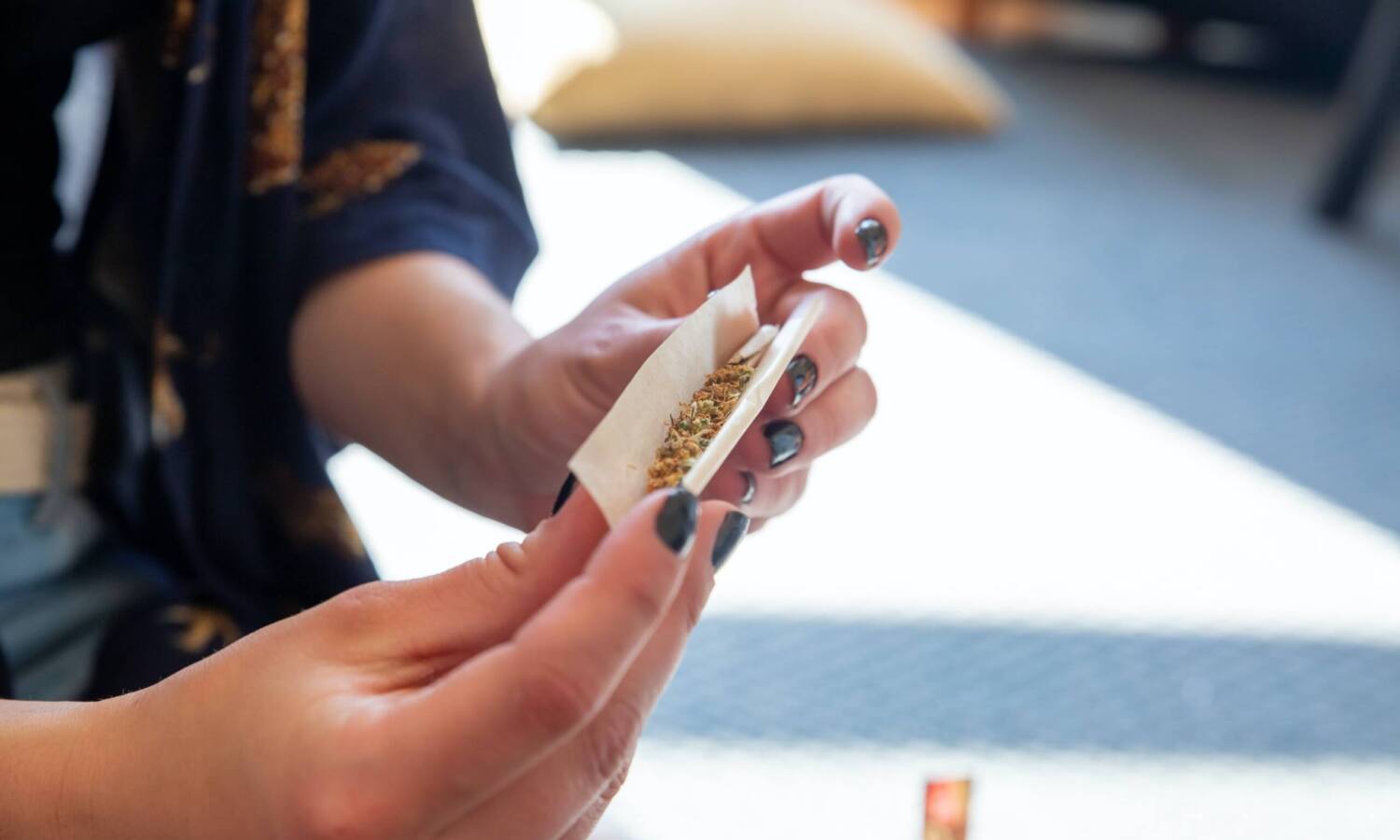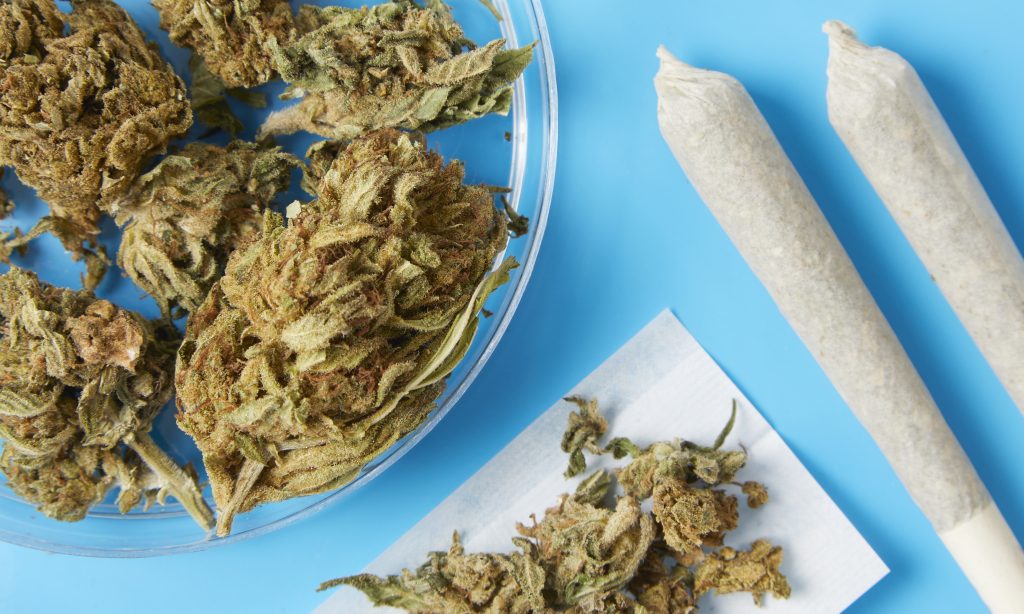
Delta-8 Products In The Cannabis Industry: What To Expect In The Future
By Tia Moskalenko
The future of the cannabis industry is a maze of sophisticated rules and regulations, types and categorizations. All of the twists and turns can make it difficult to navigate this topic, even for the interested layperson. In this article, we will look specifically at the evolution of the legality of Delta-8 cannabis products in the United States.
We’ll start with an overview of Delta-8 and what it does in the body. We will then investigate issues with Delta-8 sales and close with a look ahead to the cannabis industry in relation to Delta-8 products. We’ll also share some insights from industry experts and specialists.
Photo by Hector Roqueta Rivero / Getty Images
What is Delta-8?
Before we dive into how to sell Delta-8, let’s discuss what it is. Cannabis is made up of over a hundred cannabinoids, one of which is THC. However, just as there are multiple cannabinoids, THC does not come in a single form.
When we think of THC, we generally think of something called Delta-9 – the psychoactive compound that produces high effects. Delta-8 is an analogue of the more popular Delta-9, which means that it has a similar molecular structure, but the arrangement of the atomic bonds is not the same.
What does that mean? Well, Delta-8 has less potent psychoactive properties … its high is milder and paranoia or fear are less common side effects than Delta-9. However, it retains the same potential health benefits as its stronger relative, including (1):
- Decreased pain and inflammation
- Sleep enhancement
- Mood stabilization
- Neuroprotective properties
- Improved appetite
Delta-8 is found in the same products as Delta-9 THC, such as tinctures, vapes, joints, capsules, and edibles. Due to the reduced psychoactive effect on the brain, Delta-8 was referred to by the press as “cannabis light” or “diet weed”.
Delta-8 THC is made by converting CBD from hemp into Delta-9 and then into Delta-8 (it’s made almost entirely from hemp, not cannabis). Here we get into some of the weird legal clutter of Delta-8 THC.
 Photo by Anastassiya Bezhekeneva / Getty Images
Photo by Anastassiya Bezhekeneva / Getty Images
US Delta 8 Sales Issues
While Delta-8 is technically legal at the federal level of the United States because of the 2018 Farm Bill (2), the reality is far more complicated. Delta-9 is specifically identified as an illegal substance and is federally banned (although states can regulate these substances at will in their own jurisdiction).
Delta-8 is not mentioned, so there is a gray area within the manufacturing methods that raises questions about its legality. However, its legal status is also regulated by each individual state.
RELATED: How To Tell If Delta-8 THC Is Right For You
Because the synthetic extraction of THC is illegal, some states consider the chemical processes that convert delta-9 to delta-8 to be suspect under this law. (3) Although the process is not exactly a “synthetic extraction”, the states are permitted to interpret the wording of their own. Certain states have specifically banned the use of Delta-8 products, although it’s not illegal at the federal level. States that have made Delta-8 illegal include:
- Alaska
- Arizona
- Arkansas
- Colorado
- Delaware
- Idaho
- Iowa
- Kentucky
- Mississippi
- Montana
- new York
- Rhode Island
- Vermont
- Utah
On the other hand, there are currently 29 states that have fully legalized Delta-8 for recreational use. These are states that have legalized not only Delta-9-THC, but a variety of other hemp compounds such as cannabinoids, isomers, and salts of isomers. They also removed the hemp-derived THC from the list of controlled substances at the state level.
Even in states with legalized Delta-8 THC, other state laws that affect the hemp industry can cause issues with the quality and availability of these products. This includes things like property laws, seller laws, licensing and manufacturing laws, and the most common law used to restrict hemp: formula restrictions.
RELATED: The FDA will use Reddit to learn more about cannabis-derived products, including CBD and Delta-8
Formula restrictions essentially mean that while Delta-8 can be classified as legal in certain states, it can also be viewed as adulteration. This means that according to the law, it may not be added to consumables such as beverages, food or dietary supplements. While this type of law does not affect individuals at the ownership level, it can affect manufacturers and sellers.
All of this interconnected web of unclear or cumbersome legislation can shake the legality of THC 8. Unless you live in a state that has clearly defined law that allows Delta-8-THC to be made, sold, and owned, it can be patchy or difficult to get, even in states where consumers do can legally buy.
 Photo by Thanasis / Getty Images
Photo by Thanasis / Getty Images
What will the future hold for US Delta 8 sales?
So what’s next for Delta 8 sales in the US? Nobody knows for sure, but it is safe to assume that many of THC’s past opponents can see the rising profits made from the sale of this increasingly popular cannabinoid. However, with increasing legality, there is also increased responsibility.
Canna Redux and Forge Hemp Company CEO Russell Lombard said, “My hope for the future is that regulators step in and use Delta-8 responsibly, as it’s not just a product people get high on. Delta-8 is a therapeutic cannabinoid that helps people with anxiety, depression, and pain management. “
RELATED: FDA Warns Consumers Of Risks Associated With Delta-8 THC Products
As with CBD and Delta-9 products, the manufacturing processes, third-party laboratory testing, and clear consumer labeling with warnings for children must be very transparent.
As a country, the United States is moving more towards legalization than away from it. Federal law is unlikely to ban Delta-8, and even the DEA confirms it is considered legal at the federal level. During a Florida town hall discussing the legality of hemp and cannabis products, when asked about the legal status of the Delta-8-THC-DEA agent, Sean Mitchell repeated:
“According to the farm bill, the only controlled substance is a delta-9 THC greater than 0.3% on a dry weight basis.”
RELATED: RIP Delta-8 THC: Why States And DEA Want It To Be Banned
Of all states, only 14 have explicitly banned Delta-8. 5 states have no clear legality, while Connecticut and Michigan regulate it in the same way as recreational cannabis. While the laws are often contradicting, unevenly enforced, or confusing, the federal precedent makes the path to eventual state legalization clearer. However, the process is likely to be smoother in some states than in others.
Only through legalization of Delta-8 will consumer safety be really taken seriously. This move will increase both quality and safety standards for Delta-8 products as they are audited by regulatory agencies.
Final thoughts
While it may be cynical, for most experts the bottom line seems to “follow the money”. The increasing popularity of Delta-8 (and indeed all cannabinoids) seems to be slowly paving the way for legitimacy.
We assume that complete bans will be transformed into more stringent product regulation. Concerns about consumer safety, laws that oversee the manufacturing process, and other similar types of controls will become more common as public opinion continues to move towards legal use. In the meantime, the quicksand of so many delta 8 THC laws in banned or gray area states must be carefully navigated.
This article originally appeared on Benzinga and was republished with permission.

Post a comment: